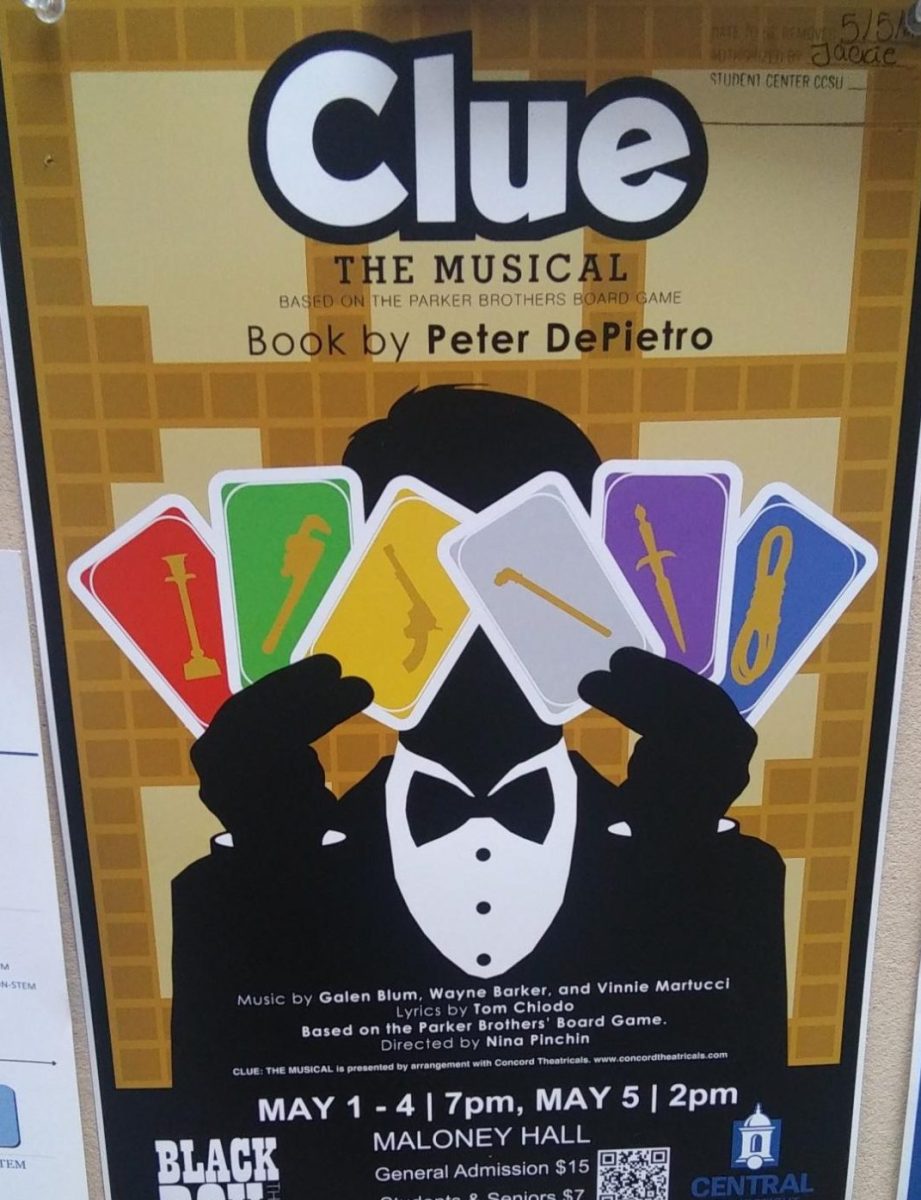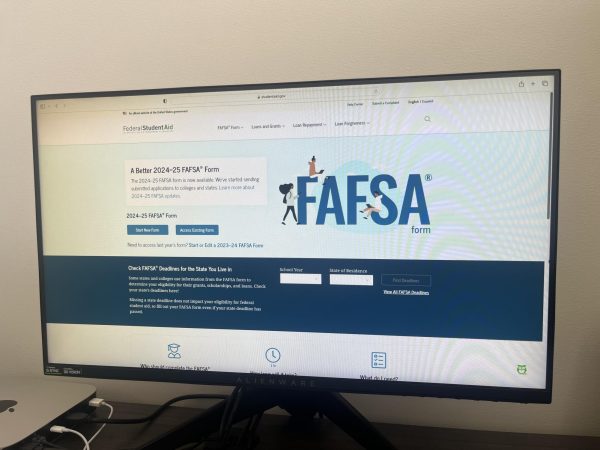Students Rally Behind Communication Professor After FOI Release
October 29, 2019
Following the Freedom of Information Act release of documents related to an investigation into accusations against Communication Professor Jeffrey Teitler, a dozen students of his, current and former, have come forward to share how his teaching style and expertise has impacted them positively in and outside the classroom.
This came in response to the article addressing the case, published by The Recorder, in which an anonymous student claimed Teitler sexually harassed a female student and created a hostile work environment in the classroom. The investigation found that there were no violations of Central Connecticut’s Nondiscrimination in Education and Employment and BOR/CSCU Sexual Misconduct policies.
Some have shared they felt Teitler’s methods were “invaluable,” “tremendous,” and “life-changing.” These students have argued his level of teaching is also what brought them to the level of success that some of them are now achieving.
Award-winning cinematographer and CCSU alum Rashad Frett, class of 2009, argues that without Teitler, he would have never made it into New York University’s Tisch School of the Arts Graduate Film Program, thus allowing him to further his film skills.
“[Teitler’s] teachings gave me a realization of how powerful the media platform is and wanting to contribute to it effectively through my work. Though I’ve taken some film courses prior to Jeff, I didn’t leave those classes feeling more confident and skilled in my filmmaking abilities as I did after taking Jeff’s courses,” Frett expressed.
“With his guidance, support and availability through the rigorous application process, from long nights at diners to endless back and forth emails and phone calls, I can’t thank him enough. I can confidently say that I would not be where I am today without knowing Jeff,” Frett continued. “I still have a long way to go but I am relieved to know that I still have his support every step of the way.”
While building upon his cinematography skills, Frett has won a number of awards, including four awards for his new short film “K.I.N.G.” and Best Urban Film for his film “The Second District” at the New York International Film Festival.
For Amber Martinez, a junior majoring in media studies, this is the level of success she is hoping to achieve with the help of Teitler and his teachings. She emphasized that the Communication Department has helped her in her field of study, but specifically noted that it was Teitler, her advisor, that really made a difference.
“I think the Communication Department is really welcoming and friendly to all students. The professors are really nice, I’ve always had great experiences with all my professors there,” Martinez explained. “In all my classes, criticism is how you do better as a filmmaker. That’s just the standard to get better.”
She calls Teitler’s level of criticism appropriate for teaching as it will help to improve students’ quality of work.
“It’s actually preparing you for the film industry and if you don’t have that passion then maybe you shouldn’t take the class,” Martinez continued. “Some students come into the class and they don’t really have a passion for film. They come into the class to fill a general education requirement but it is a lot of work. You have to have a passion for it and put in the work.”
Former student Matt Kevorkian, class of 2017, further added that Teitler’s criticism has helped him to feel better prepared for the reality of the film industry. After taking a number of courses with the professor, Kevorkian recalls only positive learning lessons that he continues to carry with him in the field.
“The way Teitler has said something is nothing compared to what I’ve had to face, but he’s got me ready for it and that’s just the way it is in the film world. You are going to meet brutally honest, passionate people,” Kevorkian stated. “He’s the only teacher that gets real results and I felt a lot of his teachings and methods stuck with me, making a lasting impact.”
According to Martinez, who has taken courses with Teitler since her freshman year, these methods are typically the same throughout every semester. Students create a film based on the topic of their choice and develop their work through their time in the class. During class time, everyone is expected to have work to edit while Teitler critiques and provides suggestions that are “meant to help with the brainstorming process.”
“Teitler doesn’t really have any limitations on what the film-maker can do because in the real-world and industry you don’t have limitations in filming, it’s based on what your preference is and the company’s standards,” Martinez noted. “The only thing with him is [that] you’re expected to follow through what your topic is in order to challenge your mind and think creatively.”
As for graduate Rob Silcox, class of 2013, Teitler’s criticism and push to be creative is what motivated him to advance his work and further develop his skills as a professional cinematographer. Now Silcox, who lives in New York, has carried his abilities to work for clients like high-profile music artists, Louis Vuitton, Target and Under Armour to name a few.
“Jeff Teitler is without a doubt an asset to CCSU and they are so fortunate to have someone who cares passionately about both the subject he teaches and the students he teaches,” Silcox stated. “It’s his words I hear in my head all the time telling me not to sacrifice or give up on my craft for mediocre jobs or anything less than what I want in life.”
Communication major Abraham Azab has gained the same sense of motivation from his learning experience with Teitler as well; looking back, he recalls the course being “tough but rewarding.”
Despite having a background in film, Azab took Teitler’s course where he was brought back to the basics.
“I had a great industry standard camera and gear, I had already been getting some paid gigs, what more could I learn? I was highly annoyed at first when Teitler forced me, along with the rest of the class, to use this crappy $200 camcorder,” Azab stated.
“Eventually, I can thank Teitler for making me take 5 steps back and being hard on me for my aesthetics and use of that camcorder,” Azab added. “Now, fast forward 3 classes later and I’m the best version of a filmmaker that I’ve ever been.”
Azab emphasized that the course encouraged him to improve on his skills to produce “[film] festival worthy work.”
“Since learning the methods Jeff Teitler teaches, I’ve never been able to think the same. I’m constantly thinking of ways I can touch on stronger topics and show scenes that give much needed information. Overall, I’ve learned that filmmaking is about story -telling and showing the truth,” Azab said.
Azab is excited and proud to use the skills he learned from Teitler to incorporate into his second short film, but for some students, even completing their first film may not even happen. This reality rings true for senior Michaela Salvo.
The student majoring in art, signed up for Teitler’s course after being the subject of her partner’s film project during the 2018-2019 school year; the film focused on her recovering after being sexual assaulted three years ago.
While working on the assignment, she found the experience to be healing, especially because of Teitler’s “sensitivity,” to the topic.
“I found Teitler to be really sensitive to the subject matter. He always asked for my permission before watching, even though I wasn’t even a student there. He would email me saying ‘I just got sent the new version, do you give me permission to watch it? I want to make sure you are safe and comfortable with it.'”
Following the film’s completion, Salvo created a new photo project called “Our Stories,” where she collaborates with other sexual assault victims and creates photos based on their stories. As she began to further develop the project in Teitler’s course this semester, Salvo and others found the process to be healing. But now it has come to a halt.
Salvo’s film, which highlighted the aftermath of sexual assault, was brought to halt due to the project’s sensitivity and the course being altered, following the release of the FOI reports. She expressed that with the new changes, she will no longer be able to experience the course the same as how she witnessed her partner learn.
“It’s really harmful from my point of view that I can’t keep doing this work, [it’s] what keeps me going, keeps me healing. I think it’s making a difference,” Salvo stated. “I’ve had a lot of people tell me its helped them and I think the rape kit video [she was creating] can help people too.”
Martinez also expressed displeasure with the reports being released and the media attention that followed from it.
“It really saddens me to see something like this published when there was no findings of this incident. And then to see this plastered all around campus, totally damaging his reputation. He does so much for his students and honestly cares so much,” Martinez said after reading the article on Teitler’s case.
“He inspired me to want to become a film professor and he made me realize that I want to go to graduate school for film at NYU. Teitler is helping me build my portfolio to make this come true. He has such a great heart and will give his student’s the world if he could,” Martinez stated.










